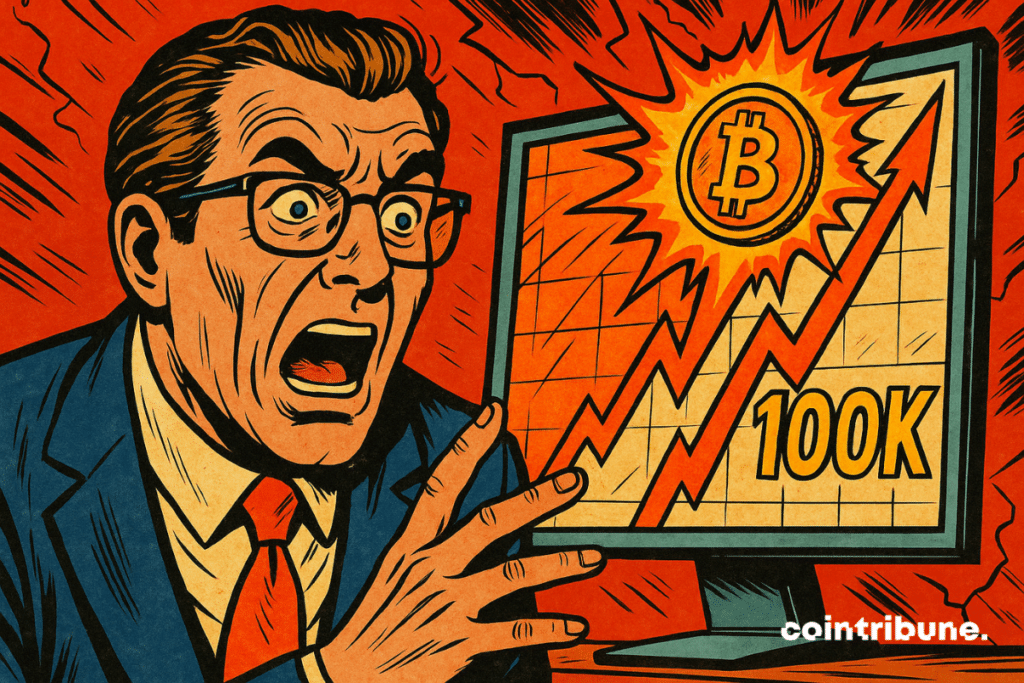Bitcoin Is Becoming Scarce: Is The Market Ready To Explode?
Since its creation, Bitcoin has intrigued as much as it fascinates. But today, a rare phenomenon is capturing experts’ attention: the available supply of Bitcoin is melting away like snow under the sun, while demand keeps climbing. According to recent analyses by the Swiss bank Sygnum, we are on the brink of a scarcity shock. And the consequences could well redraw the global financial map.

In Brief
- The liquid supply of Bitcoin is collapsing, driven by institutional accumulation and massive withdrawals from platforms.
- States and governments are considering Bitcoin as a reserve asset, strengthening its global legitimacy.
- Bullish volatility dominates, signaling a mature market ready for a new price surge.
An Emerging Imbalance: Less Bitcoin, More Demand
In 18 months, the liquid supply of Bitcoin has dropped by 30%. A raw statistic but full of meaning. Simply put, fewer BTC are freely circulating in the markets. This tightening mainly comes from major institutional players who, like discreet collectors, withdraw their tokens from public exchanges. ETFs, listed companies, specialized funds: all accumulate without selling.
Why this behavior? For strategic reasons. These entities use new acquisition vehicles, such as securities backed by bitcoins, to keep them off the market. This artificially reduces the available supply, a mechanism historically known to cause price surges.
But the mechanism doesn’t stop there. Since late 2023, over one million BTC have left exchange platforms as reported by Cointelegraph. In other words, the faucet is closing, but the bathtub keeps filling faster. Because at the same time, geopolitical uncertainties and the fragility of the U.S. dollar are pushing investors to seek a safe haven. And that haven now has a name: Bitcoin.
States Get Involved
Private institutions are no longer alone in the dance. Three U.S. states have already paved the way for public Bitcoin reserves, and Texas is set to follow. A trend spreading: in the UK, the Reform UK party is discussing the same strategy, as is the Pakistani government.
This evolution marks a paradigm shift. The idea of a state holding Bitcoin is no longer a libertarian whim, but a serious financial approach. If these official purchases materialize, they could cause a double leverage effect: a direct increase in demand and a powerful legitimacy signal sent to the global markets.
For Sygnum, the real shock will not only come from the volume of these purchases but from the psychological effect they will generate. If one state bets on Bitcoin, then why not the others? And above all: who would still want to sell?
Another major data point: Bitcoin’s bullish volatility now surpasses the bearish one. Where the market was once known for spectacular crashes, it is today more stable… but in a positive direction. Since 2022, each price rise is stronger than the falls, a sign that the market is gaining maturity, supported by long-term investors.
And that’s not all. Bitcoin is increasingly positioning itself as a macroeconomic refuge, on par with gold. Facing the explosion of U.S. debt and the massive sale of Treasury bonds, some now prefer to secure their capital in BTC. This correlation between gold and Bitcoin strengthened even further in May, with both assets rising in tandem.
Maximize your Cointribune experience with our "Read to Earn" program! For every article you read, earn points and access exclusive rewards. Sign up now and start earning benefits.

Fascinated by Bitcoin since 2017, Evariste has continuously researched the subject. While his initial interest was in trading, he now actively seeks to understand all advances centered on cryptocurrencies. As an editor, he strives to consistently deliver high-quality work that reflects the state of the sector as a whole.
The views, thoughts, and opinions expressed in this article belong solely to the author, and should not be taken as investment advice. Do your own research before taking any investment decisions.